Artifact Details

After Doctor Zhivago was denied publishing in the USSR, CIA stepped in to secretly publish the novel.
Copy of the original Russian-language edition of Doctor Zhivago, covertly published by the CIA. The front cover and the binding identify the book in Russian; the back of the book states that it was printed in France.
Renowned Russian author Boris Pasternak won the Nobel Prize for Literature in 1958 for his “lyrical poetry and epic” writing, particularly his masterpiece Doctor Zhivago, a love story set against the backdrop of the Russian Revolution.
In 2008, a broadcaster and literary historian named Ivan Tolstoy, himself the scion of a famous Russian literary family, published a book alleging that the CIA had secretly arranged for the publication of a limited-run, Russian-language edition of Doctor Zhivago. The problem that the CIA allegedly solved was that the Nobel Prize committee needed to read the text as it was originally written, which Soviet authorities would not publish because they considered it to be “a malicious libel of the USSR.”
Tolstoy spent 10 to 20 years researching the story. According to The Washington Post, Tolstoy concluded that “Pasternak’s novel became a tool that was used by the United States to teach the Soviet Union a lesson.” His argument is that it was part of an ongoing US campaign to promote authors who told the truth about the harsh realities of life in the Soviet Union. The CIA officially declined to comment on Tolstoy’s conclusions.
Pasternak knew nothing of the CIA’s role, according to Tolstoy and the writer’s family. In the end, the results were mixed. A delighted Pasternak initially accepted the prize, but the Soviet government soon forced him to decline the honor.
Artifact Specs
14 cm x 9 cm x 2 cm
(LxWxH)
The Debrief: Behind the Artifact - Dr. Zhivago
In 1956 the Soviet government banned the book “Dr. Zhivago” by Russian author Boris Pasternak, who went on to win the Nobel Prize in literature in 1958. So why did they do this to a literary great?
Dr. Zhivago negatively, but accurately portrayed the hardships caused by the Soviet revolution, communism, and the oppressive Soviet government. Suppressing the publication of this book in the Soviet Union led the CIA on a literary mission.
The CIA created small pocket-sized versions of “Dr. Zhivago” that they could have snuck back into the country.
Giving the citizens the opportunity to read a book that was banned really showed them what they were missing.
Essentially the freedom of artist expression and the ability of a populace to choose for themselves what they wanted to read. This was an ongoing US Government campaign to promote authors who showed the harsh realities of living in the Soviet Union.
The CIA declassified its missions involving “Dr. Zhivago” in 2014.
